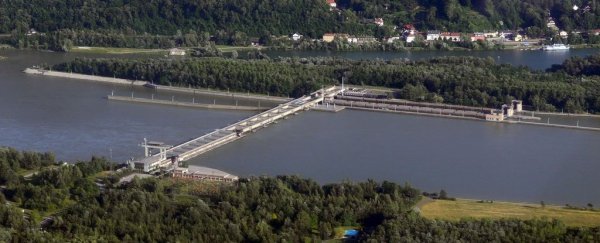Lower Austria, the largest of the country's nine states, announced this week that is has gone all in on clean energy, with 100 percent of its electricity generation for its 1.65-million-strong population now sourced from renewable energy.
In the weeks before world leaders meet for decisive UN climate talks in Paris later this month, the announcement of Lower Austria's achievement is a beacon of hope amid other grim environmental news – and also a testament to how much the state has put into clean energy production.
"We have invested heavily to boost energy efficiency and to expand renewables," said Erwin Proell, premier of Lower Austria, at a news conference, as reported by AFP. "Since 2002 we have invested 2.8 billion euros (US$3 billion) in eco-electricity, from solar parks to renewing (hydroelectric) stations on the Danube."
And it's those hydroelectric stations harvesting the natural power of the Danube river that produce most of the state's energy; Lower Austria receives almost two thirds (63 percent) of its electricity from hydroelectric power. About a quarter (26 percent) comes from wind energy, with the remainder generated by biomass (9 percent) and solar (2 percent) power systems.
The focus on clean energy isn't just good for the environment, either. According to the report, Lower Austria has created some 38,000 'green jobs' thanks to its heavy investments in renewable energy production, and the state aims to up this to 50,000 positions by 2030. The rest of Austria is also remarkably invested in renewables, with 75 percent of the country's electricity coming from clean energy.
Among countries in the European Union, Austria leads the pack when it comes to the percentage of electricity it generates from renewable sources, followed by Sweden, Portugal, Latvia and Denmark. A number of these countries are regularly singled out for their environmentally minded initiatives and achievements.
Sweden recently announced it was aiming to become the world's first fossil-fuel-free nation, and Denmark has enjoyed success in generating and sharing surplus energy through its wind power network. Elsewhere in Europe, one of the world's leaders in renewable energy production, Norway, announced recently it was banning cars from its capital's city centre in an ambitious bid to reduce carbon emissions by 50 percent.
But with the Paris climate talks steadily approaching, negotiations between these and other nations are sure to be fierce, as world leaders are faced with the fraught issue of locking in temperature rises of just 2 degrees Celsius this century – even though some are saying that target will not be enough to stop a catastrophic rise in sea levels.
